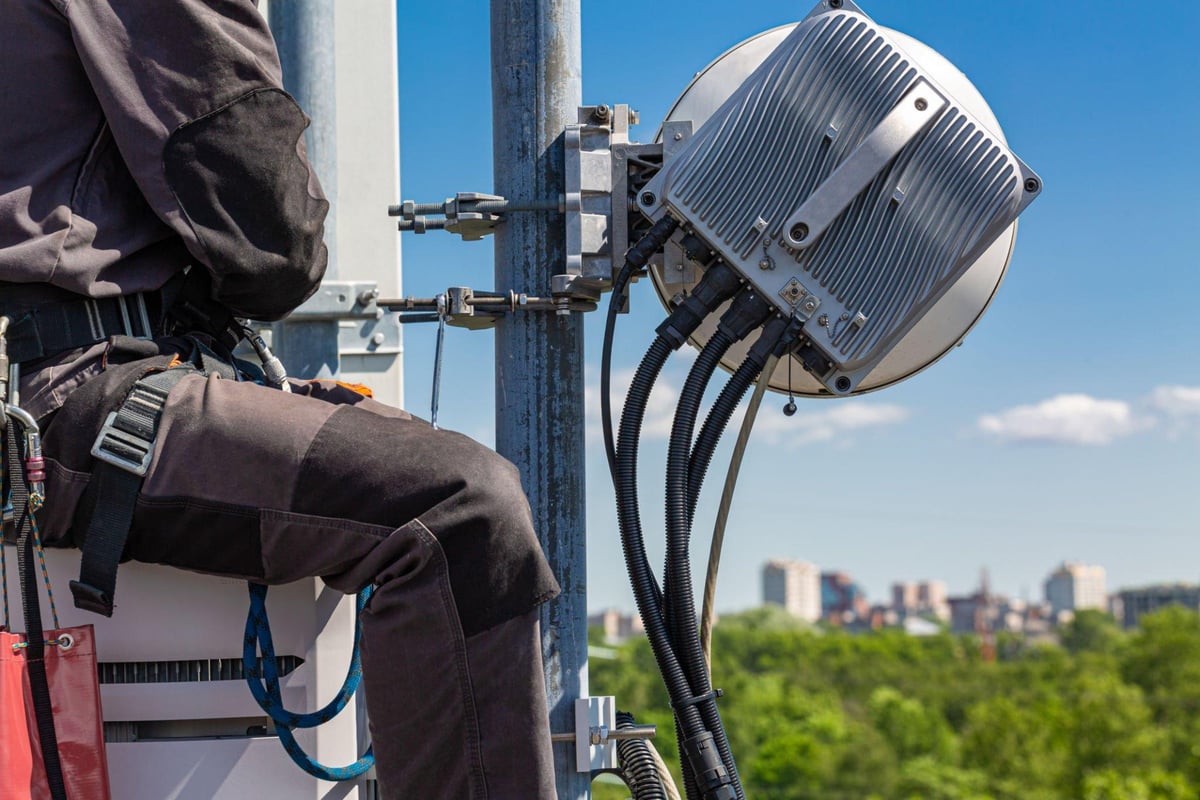
Financial aid (may be available)

No cost info

Financial aid (may be available)

Financial aid (may be available)
The telecommunications industry is a thriving sector that offers exciting opportunities for people looking for a challenging and rewarding career. One such opportunity is the role of a Tower Technician. This blog post aims to provide comprehensive information about becoming a Tower Technician in Albany and how you can find the best classes that suit you.

A Tower Technician, often referred to as a Tower Climber, is a professional who installs, maintains, and repairs cellular and telecommunications towers. These professionals are responsible for ensuring that the equipment on these towers, such as antennas and satellite dishes, is operating effectively. They perform routine inspections, troubleshoot issues, and replace faulty equipment as needed. Tower Technicians often work at great heights and in various weather conditions, making it a physically demanding job that requires a high level of fitness and fearlessness.
To become a Tower Technician, you typically need a high school diploma or its equivalent and some form of vocational training. Here are some of the key areas covered in a Tower Tech training program:
Safety protocols: This is crucial as technicians often work at great heights and deal with potentially dangerous equipment.
Tower climbing and rescue: Technicians need to learn proper climbing techniques as well as rescue procedures in case of emergencies.
Equipment installation and maintenance: Technicians must learn how to install, repair, and maintain various types of telecommunications equipment.
When choosing a Tower Tech class in Albany, consider the following factors:
Course content: Ensure the program covers all necessary topics, including safety protocols, tower climbing, and equipment handling.
Qualified instructors: Look for classes taught by experienced Tower Technicians who can provide practical knowledge and insights.
Hands-on training: Theoretical knowledge must be complemented by practical training. Make sure the class includes plenty of hands-on exercises.
Students can expect a mix of classroom learning and practical training in a typical Tower Tech class. The theoretical part focuses on understanding the basics of telecommunications, safety protocols, and equipment handling. The practical training involves climbing towers, installing equipment, and learning rescue operations.
The certification process usually involves completing a training program, passing a written exam, and demonstrating practical skills. Upon successful completion, students receive a certification that verifies their ability to work safely and effectively as a Tower Technician.
Once you are certified, you can start applying for jobs as a Tower Technician. Some potential employers include telecommunications companies, tower installation firms, and federal agencies. You can also explore opportunities in related fields, such as Radiology Technician and HVAC Technician.
After becoming a Tower Technician, you may want to expand your skills and knowledge by taking additional classes. Here are a few options:
Advanced safety training: This can enhance your understanding of safety protocols and reduce the risk of accidents.
Specialized equipment training: This can broaden your skill set and make you more valuable to employers.
Leadership and management courses: These can prepare you for supervisory roles within the field.
If you're interested in exploring other vocational paths, consider classes for becoming a Certified Medication Aide or a Psychiatric Technician. These careers also offer rewarding opportunities and can be pursued through vocational training programs.
Tower Technicians may also consider upskilling opportunities to increase their marketability. For instance, they might consider becoming a Certified PCT or a Medical Office Specialist.
With experience and additional certifications, Tower Technicians can progress to supervisory or management roles. They might also consider branching out to other areas in the telecommunications industry, such as network installation or systems administration.
Choosing to become a Tower Technician can open the door to a rewarding career with plenty of opportunities for growth and development. By selecting a comprehensive training program, you are laying a solid foundation for a successful career in this exciting field. Remember, the journey to becoming a Tower Technician requires dedication, but the rewards can be well worth the effort.
Dreambound has an extensive collection of guides that dive deep into how to get started in the field, tailored for various cities. For those based in different locations or planning to move, we recommend exploring our other guides.
Exploring a variety of professional opportunities? Dreambound has many extensive guides to help you make informed decisions. Check out these guides:
Dreambound's platform allows prospective students to find the right educational program for them through searching, filtering, and connecting with our extensive selection of career & technical education partners.
Dreambound has over 70 programs across healthcare, technology, business, and industrial trades. This includes programs such as Medical Billing, Cybersecurity, and welding.
Some of our schools offer financial aid for those who qualify. Many others offer payment plans, where you can pay the cost of class over time.
Yes, Dreambound offers many online programs. On Dreambound's search, you can filter by online, in-person, and hybrid (part online, part in-person).
Dreambound is completely free for you to use! We are supported by schools and organizations who pay to advertise on our website, so we can offer all of our career resources for free.